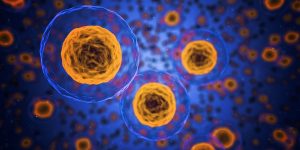Sjögren's syndrome (SS) is a disorder systemic inflammatory, chronic and autoimmune. This disease can potentially affect any organ or system of the body, such as the respiratory, urinary or gastrointestinal system. However, exocrine glands, such as those salivary and lacrimalare those most affected by the disease. The dysfunction of these glands leads to a serious dryness condition both in the eyes (xerophthalmia), in turn causing dry eye disease (DED), and in the mouth (xerostomia).
The most frequent manifestations of this autoimmune disease, in addition to dry eyes and mouth, include:
-redness and pain of the ocular surface;
-lymphocyte infiltrates the cells of the affected glands;
Clinically, SS is defined as primary if it is the only disease affecting the affected person; secondary if it occurs together with other diseases of the immune system, such as rheumatoid arthritis or systemic lupus erythematosus.
Epidemiological studies have shown that SS, whose total prevalence is around 0.01%-0.06% of the population, appears in middle-aged women 10 times more frequently than in men.
New perspectives in stem cell treatment?
The underlying causes of SS remain to be elucidated and the molecular mechanisms behind it are not yet fully known, except that oneAlteration of the balance of the innate and adaptive immune system underlies the onset of SS. To date, there is no decisive therapeutic strategy for Sjögren's syndrome, but recent research published in Stem Cells International, appears to open new treatment perspectives through the use of mesenchymal stem cells (MSCS). MSCs represent a type of stem cell that naturally have great capacity to differentiate into different cell types. They are able to differentiate into bone cells (osteoclasts), adipose tissue cells (adipocytes) or cartilage cells (chondrocytes). The interest of researchers in this stem cell line for the treatment of certain diseases stems from the fact that MSC in vitro have a very fast proliferative capacity and strong immune-modulatory activity, thus lending themselves well as possible alternative therapeutic strategies. Furthermore, studies have shown that MSCs have a high capacity to differentiate into cells of the salivary epithelium, thus restoring the functionality lost as a result of autoimmune disease. These data, therefore, confirm that their use could be a valid therapeutic alternative, free of adverse side effects, among other things.
Therefore, in the not too distant future, wider clinical trials could confirm the therapeutic role of MSCs in Sjögren's syndrome.
Source
Chen W et al. Mesenchymal Stem Cells in Primary Sjögren's Syndrome: Prospective and Challenges. Stem Cells International (2018)
Dr. Carmelo Chines
Direttore responsabile

